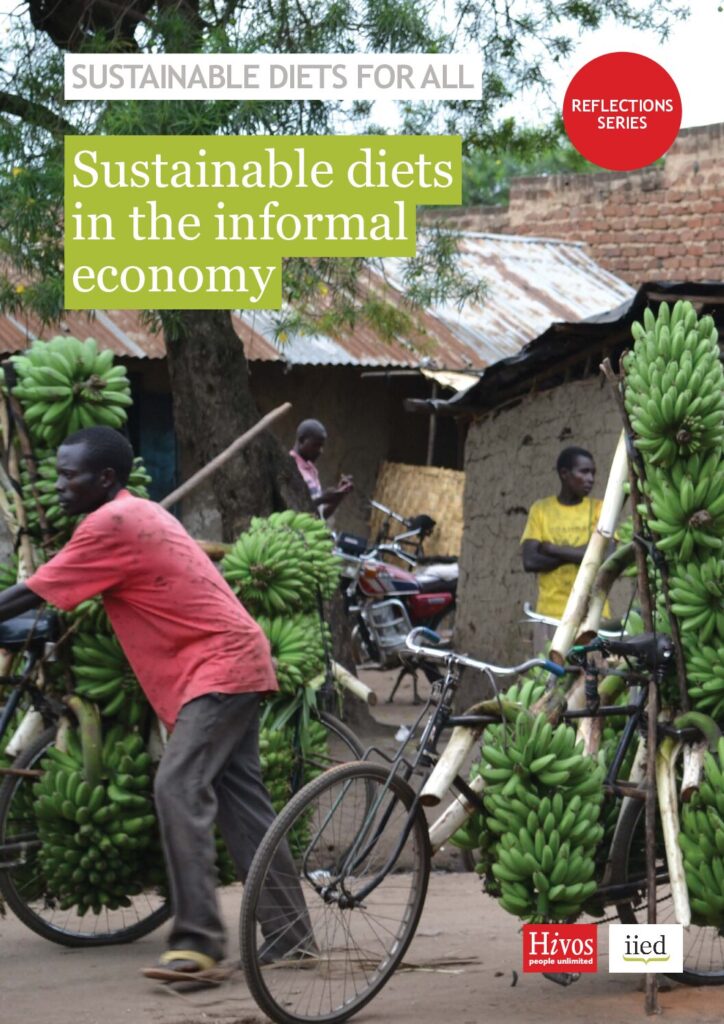Informal food systems contribute to the food and nutrition security of hundreds of millions of people around the world, particularly in the global South. But the concept of sustainable diets – which brings together global priorities around food and nutrition security, environmental protection and economic affordability – is built around the formal food systems of industrialised countries.
Drawing on lessons from the Sustainable Diets for All programme, this paper considers the function and performance of informal food systems in achieving sustainable diets. With a focus on evidence, agency and advocacy, we review research and experiences around informality and sustainable diets from Bolivia, Indonesia, Uganda and Zambia.
The paper highlights how informal food systems are often unfairly assumed to be inefficient and unsafe, which leads to inappropriate policy and planning for sustainable diets. We argue that a transition to sustainable diets that works for people and planet should build on rather than criminalise or replace functioning informal food systems. We call for greater support for informal economy actors and recommend that donors, policymakers, NGOs and CSOs work with informal food systems to achieve sustainable diets for all.

